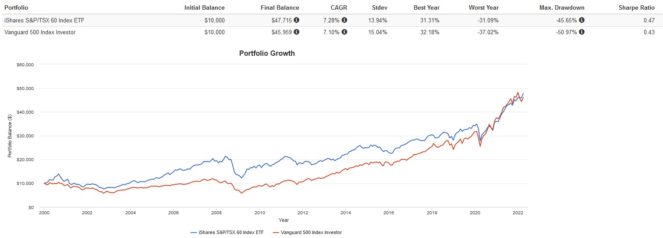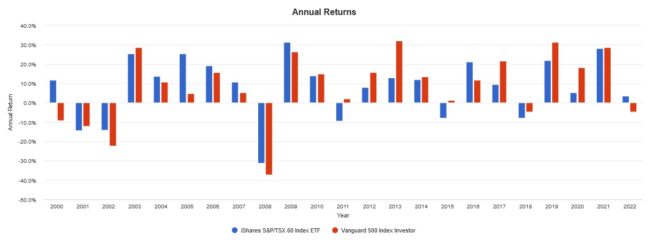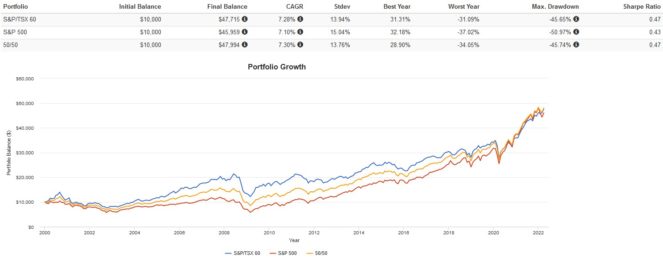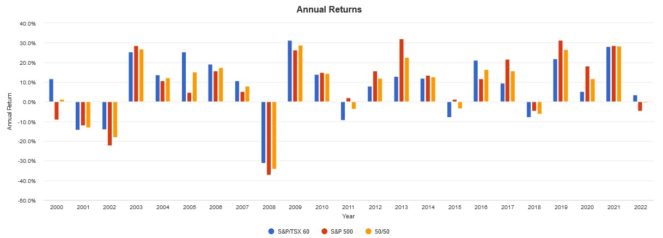Many Canadian investors have been enthralled in the last few years by the strong performance of the U.S. stock market. Indexes like the S&P 500 and NASDAQ 100 have posted some tremendous returns, aided by the growth of mega-cap tech stocks like Apple, Microsoft, Amazon, Alphabet, and Tesla.
With these handsome returns, it’s no wonder why so many investors are piling into U.S. stocks these days. Some investors even eschew international and domestic stocks altogether, preferring to bet their long-term investment portfolios all on the U.S. economy.
Too much in U.S. stocks?
The truth is, the U.S. stock market only comprises 55% of the world’s total stock market capitalization. In the grand scheme of things, the U.S. market is really just half the story. There’s still another 45% of stocks out there that investors will miss out on if they only invest in the U.S.
For this reason, Canadian investors who overweight U.S. stocks might miss out on diversification benefits. Too much in U.S. stocks also exposes you to excessive currency risk and lower tax efficiency due to the 15% foreign withholding tax on dividends (unless you’re investing in a RRSP).
The U.S. vs. Canada
The stock markets of different countries are cyclical. None can outperform the others perpetually on end; otherwise, everyone would just invest there and send its valuations sky high. Reversion to the mean does occur. Markets that enjoy bouts of outperformance are just as likely to underperform later.
The following backtest plots the returns of the S&P 500 vs. the S&P TSX 60 from 2000 onward on a trailing basis. Both indexes are neck and neck with similar returns, volatility, drawdowns, and best/worst years. Investors buying and holding either would have netted a similar return.

The story changes when we examine their annual returns year by year. We see that from 2017 to 2021, the S&P 500 outperformed the S&P/TSX 60 every single year. But from 2004 to 2009, the opposite was true. Overall, in this in this 22-year period, the S&P 500 won 12 times, and the S&P TSX/60 won 10 times.

Why diversify?
The problem many investors face here is a psychological one. Most investors constantly chase performance. If the U.S. market is doing hot, they pile in there. If the Canadian market is soaring, they rotate there. This is market timing. It causes investors to buy high and sell low.
It can be taxing to see your investments and market do poorly while the other parts of the world perform well. A good investor remembers to diversify and stay the course.
To illustrate my point, let’s see how a 50/50 portfolio of the S&P 500 and the S&P/TSX 60 would have performed compared to either of the two individually.


The 50/50 portfolio smoked both the others, with a better overall return, lower volatility, and better Sharpe ratio. You would have gotten the best of both worlds, ensuring that you never suffered relative bouts of underperformance but not sacrificing any gains either. This is the power of diversification.






